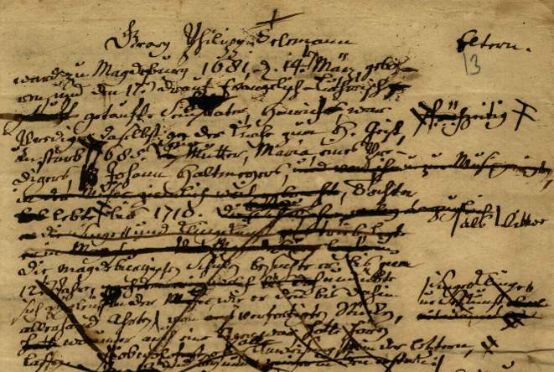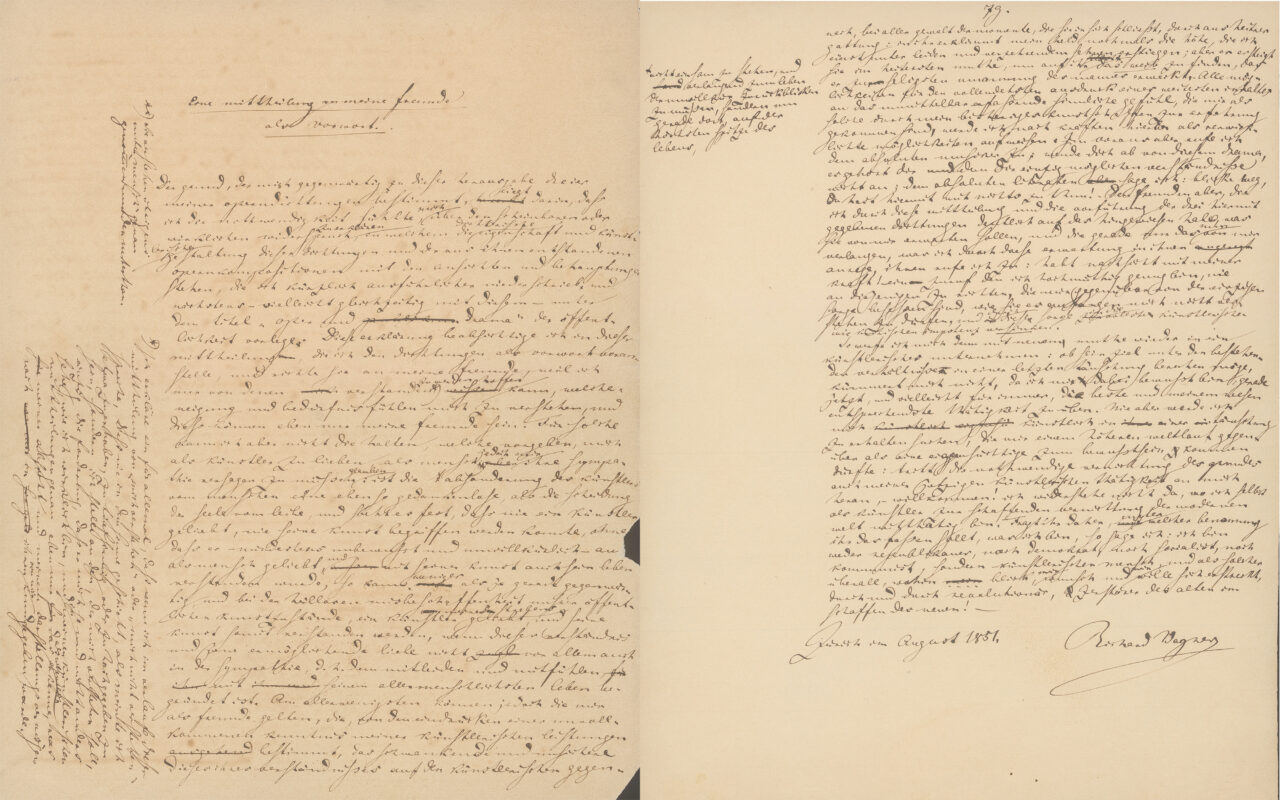Previously unknown Telemann autobiography discovered
A previously unknown autobiography of the composer Georg Philipp Telemann (1681-1767) has been discovered in the Latvian State Historical Archives (Riga). The autograph sketch can be found in materials from the estate of the Riga cantor Georg Michael Telemann, the grandson of the famous Hamburg music director and Johanneum cantor.

The musicologist Ralph-Jürgen Reipsch, an employee of the Center for Telemann Care and Research in Magdeburg, has published the discovery as well as a previously unknown German-French biography in the current issue of the journal Music research published.
Telemann's text, which was written around 1738, could be an independent but rejected version for Johann Mattheson's Musikerlexikon Basis of an honorary gate (1740). Telemann describes the circumstances of his life in the four-page manuscript under the five headings "Parents", "Education", "Studies", "Music" and "Positions of Honor".
Under the heading "Parents", he devotes himself primarily to his mother, from whom he derives his musicality. Her decision to give the extremely talented boy an education beyond music at schools in Zellerfeld and Hildesheim and to allow him to study law in Leipzig testifies to the wisdom of this educated and pious woman, who found herself in poor financial circumstances following the early death of her husband (1685), the Holy Spirit preacher Heinrich Telemann.
The text is also remarkable due to the fact that it is a working sketch from which all phases of composition can still be seen: Numerous deletions, overwritings and additions show how Telemann searched for formulations and how he strove to organize the biographical focal points in a meaningful way. This document thus allows us at least to some extent to approach the author's thinking and deliberations.
Telemann's new biography ends in the section "Positions of Honor" with an unfortunately much too brief description of his extremely successful trip to Paris in 1737/38, which was undoubtedly a highlight of his musical life and from which he returned "completely delighted".
The second German-French biography mentioned at the beginning is likely to be a corrected, streamlined and linguistically revised new version of the first bilingual biography from 1744, which was produced around 1746 in connection with Telemann's printed cantata volume "Musicalisches Lob Gottes" (Nuremberg 1744). Numerous correction marks identify the single leaf printed on both sides as a galley proof from the correspondence with the Nuremberg publisher Balthasar Schmidt. Apparently, however, this biographical text did not receive any further distribution.







